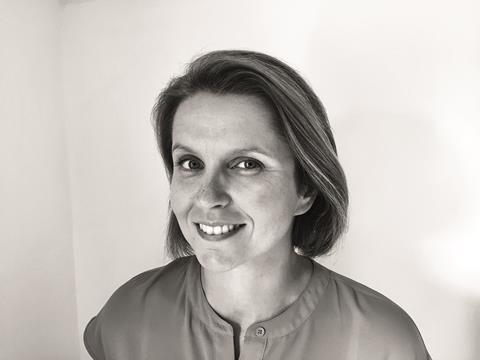’It’s too easy for companies to ignore the issue of disability’
Celine Fitzmaurice is a series producer whose credits include BBC1’s Grierson-nominated Rivers Of Blood, C5’s Hidden History Of Britain and National Geographic’s Drain The Oceans. She currently works at OR Media

My disability was diagnosed while I was on maternity leave, so I have worked in TV as an able-bodied person and then returned with a hidden disability. I haven’t openly spoken with any of my employers about it, apart from my current one, because I feel production companies are just worried about taking the path of least resistance when it comes to their profit margins.
People with disabilities fall by the wayside because they are considered a problem. That mentality makes it important for people like me to speak out, but I worry that I will face discrimination by putting my head above the parapet.
I’ve had to adapt my working life. At one point, I decided to do more edit producing because that offered a more regular, nine-to-five routine than shoots with insanely long hours, which would exacerbate my condition.
On another occasion, I started to get ill while on a brief break from work. I was due to return to the same company and thought I was going to have to withdraw – but I didn’t want to tell them because I was fearful that they wouldn’t employ me again.
When I told some of my family and friends about my illness, they unintentionally started disabling me – telling me what I could or couldn’t do – so I’m conscious that people in a professional setting might bring their own baggage if I raise my condition.
“If we want things to change, then the system needs to change”
One problem is that the freelance nature of TV means it isn’t policed in the same way as other industries, so it’s easy for companies to wash their hands of it all. When I confided in a TV friend about my condition, she replied, “for god’s sake, don’t say anything”, knowing this reality all too well.
If we want things to change, then the system needs to change, and I hope that the broadcasters mean it this time, but it needs strong incentives for production companies to change their practices.
When we talk about disability, we immediately think about visible, physical disability, but there are people with hidden disabilities. There hasn’t been much discussion about how we handle that sensitively.
I always declare my condition for insurance purposes when joining a project. Companies could use this information to build inclusive workplace practices. So far, despite having this information, not one has ever asked me if there is anything they can do to make the workplace better for me.
I told OR Media execs about my condition partly because they offered me a long-term contract. What has helped me feel more comfortable talking about my disability is the work of the Deaf & Disabled People in TV group. It’s a grassroots group challenging the industry to change the way it handles disabled talent.
I also received support from ScreenSkills and ThinkBigger’s Engage mentoring scheme, which paired me with Lion TV’s Emma Morgan. It has been really positive to talk to a well-connected, senior individual in the industry about my professional development.
Disability is often framed as the exception, but we need to make finding disabled talent in workplaces as normal as finding a kettle in the office kitchen.
The truth about disability in TV
- 1
- 2
 Currently reading
Currently readingCeline Fitzmaurice, series producer
- 3
- 4
- 5
- 6
- 7





































No comments yet